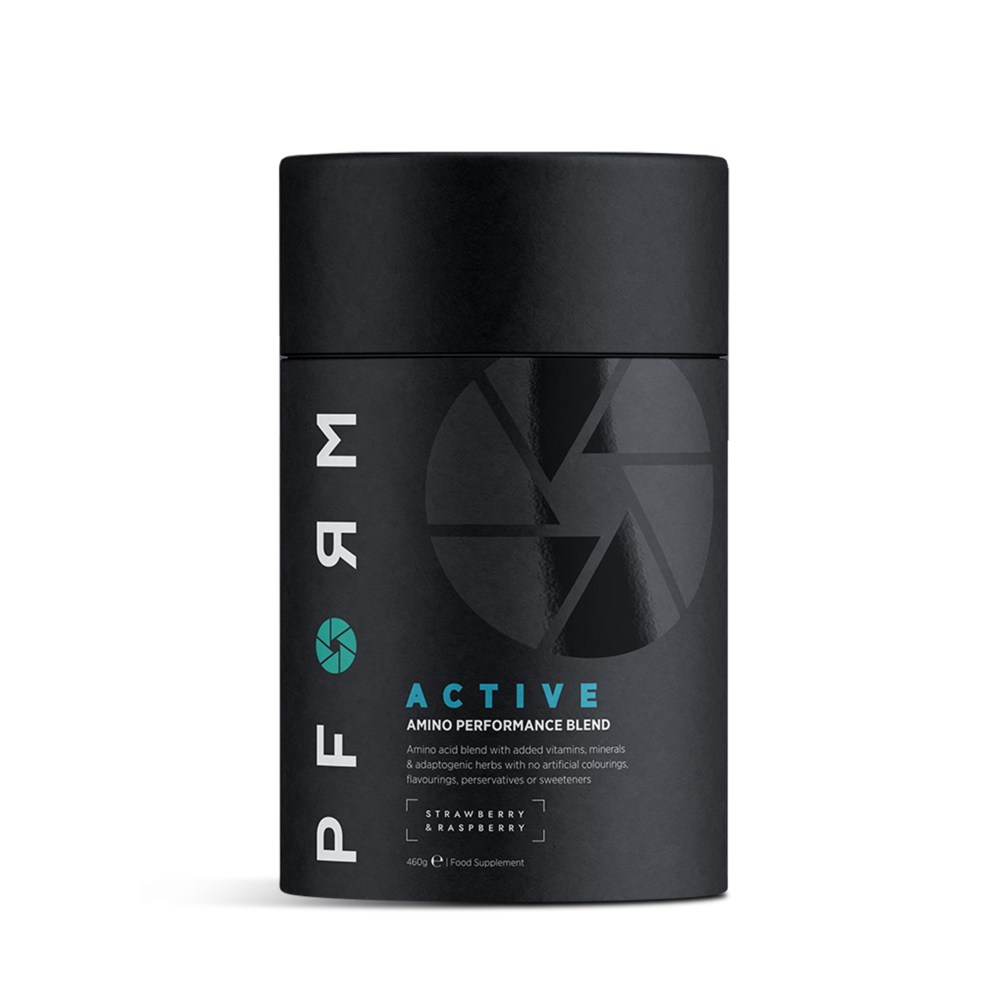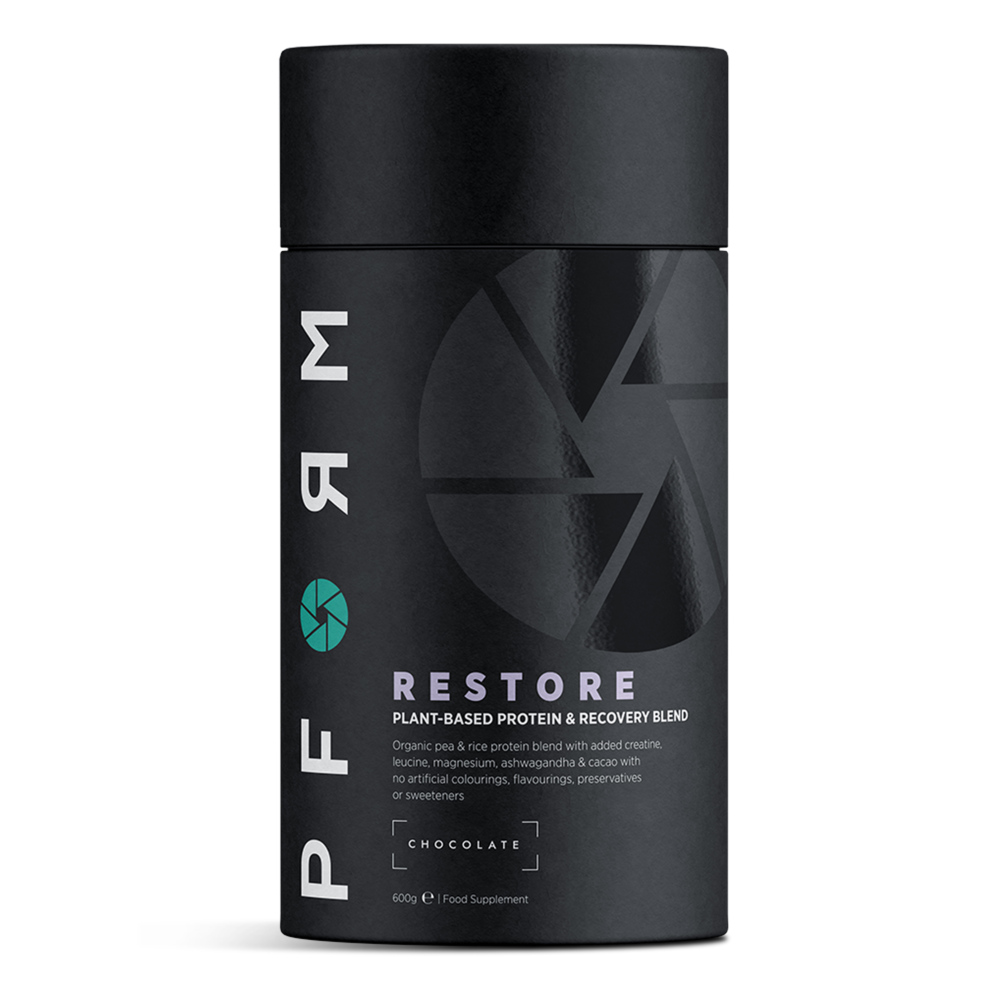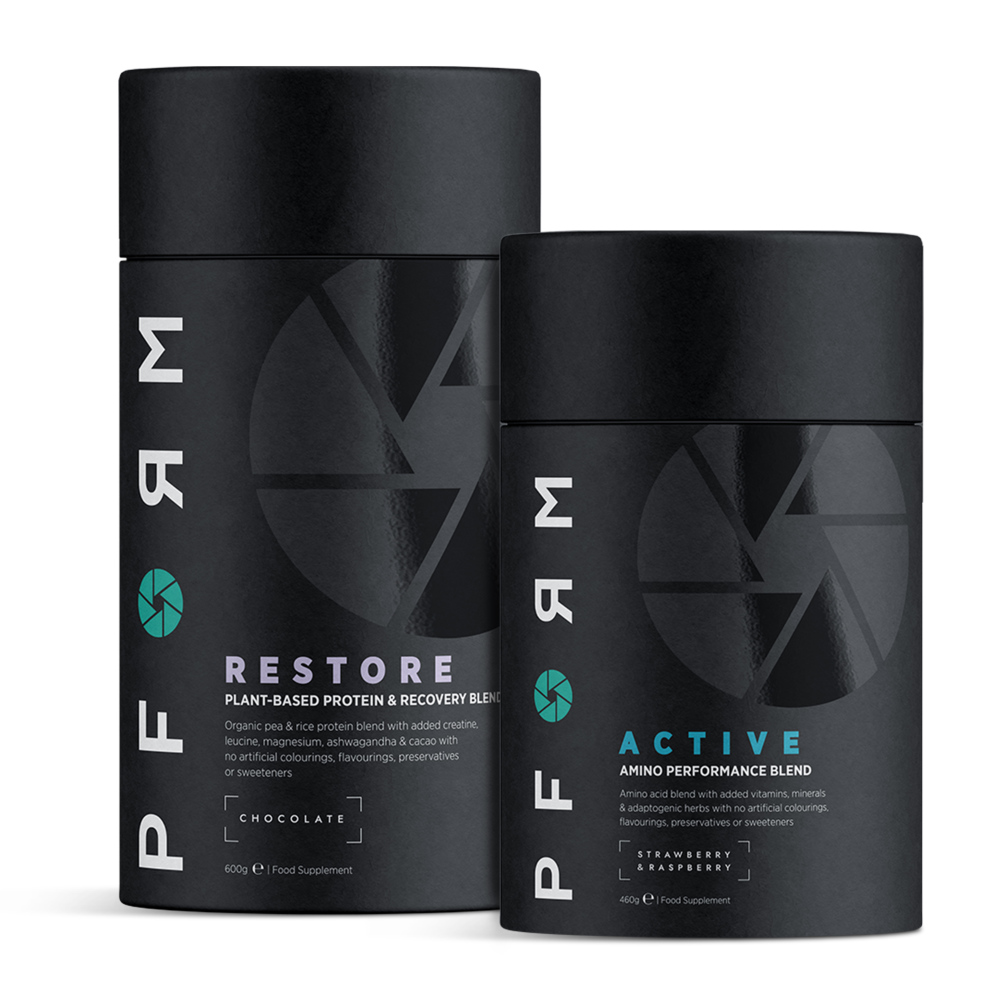
The Health and Performance benefits of Magnesium
Magnesium is a critical mineral and electrolyte (a substance necessary for fluid regulation in the body) required for over 300 reactions in the human body. Considering its integral role in so many processes, from energy production, to protein synthesis to the rhythmic beat of the heart, being just a few, I don’t think it quite gets the attention that it deserves.
This article covers the role of magnesium, with a focus on magnesium glycinate and magnesium malate. Magnesium glycinate is used in PFORM Restore and magnesium malate in PFORM Active. Both forms can be used to assist with physical performance and recovery.
Introducing Magnesium
Over 50% of the general population are magnesium insufficient! This isn’t great news considering the wide range of functions that magnesium has. Magnesium plays a role in the use and production of energy (ATP), the synthesis of the building blocks of the human body (DNA and RNA), the production of antioxidants and is involved in muscular contraction, nerve function and immune function – and this list isn’t even exhaustive (1).
Consistently low intakes of magnesium increase the risk of developing illness. Magnesium deficiency has been associated with: high blood pressure and cardiovascular disease, type 2 diabetes, osteoporosis and migraines (2).
Athletes, especially those who participate in weight control sports such as wrestling or gymnastics, may be particularly vulnerable to inadequate magnesium intake. Also, the recommended intake of magnesium may be insufficient for athletes, depending on body size and training volume (3). For these individuals, magnesium supplementation and/or increased dietary intake may be beneficial to optimise exercise recovery and performance.
Symptoms associated with low intake of magnesium include fatigue, sleep disturbances, muscle cramps, muscle weakness, impaired exercise performance, irregular heartbeat, depression, high blood pressure, high blood sugar, asthma (4).
Introducing Glycine
Glycinate is the salt form of glycine, an amino acid (the building blocks of protein), that the magnesium is attached to. The glycine joins to the magnesium to allow more efficient absorption of the magnesium, increasing bioavailability.
Although non-essential (as in our body can synthesise it), glycine plays a critical role in the central nervous system (CNS) and the body’s demands for utilising it may be higher than its ability to produce it (5). Deficiencies are associated with impaired CNS function and metabolism dysfunction (6).
Introducing Malic Acid
Malic acid can be found naturally in several fruits and vegetables, with apples being the number one natural source. The body uses it as part of the generation of ATP, our bodies energy carrying molecule.
Essentially malic acid is involved in the conversion of the food you eat, into energy that can be used by our cells, such as when it comes to performing physical movement.
Some research has pointed towards benefits in exercise performance, helping to reduce muscle fatigue. It has also been shown to enhance absorption of creatine, an ingredient in PFORM restore, one of many reasons why the combination PFORM Restore and PFORM Active work well together. Within PFORM Active you will find magnesium malate. This combines magnesium with malic acid and is one of the most absorbable forms of magnesium.
General benefits of Magnesium
Bone health
Magnesium deficiency is associated with low calcium levels, low vitamin D levels and inflammation – all factors that contribute to poor bone health, osteopenia and osteoporosis. It’s important to have the right amount of magnesium since chronically high magnesium levels also put people at risk for fractures (7). Magnesium supplementation may improve bone health (8,9,10).
Heart health
Magnesium may affect heat health through a variety of pathways: reducing chronic inflammation, reducing stiffening of the arteries and reducing the propensity of blood to clot (11,12). Higher intakes of magnesium may be associated with reduced cardiovascular disease risk (13,14).
Type 2 diabetes and insulin sensitivity
Magnesium impacts blood glucose control and insulin secretion and sensitivity. Deficiencies in magnesium are associated with type 2 diabetes (15), with lower intakes of magnesium intake significantly associated with type 2 diabetes (13). Higher magnesium intakes and magnesium supplementation are associated with lower fasting glucose and insulin levels and improved insulin sensitivity (16,17). Those who have lower intakes of magnesium are at increased risk for insulin resistance and developing type 2 diabetes (18).
Migraines
Lower magnesium levels are associated with migraines and supplementation may be effective for managing migraines (19,20).
Depression and anxiety
Low magnesium levels may be associated with depression and magnesium supplementation may alleviate depressive and anxious symptoms (21,22,23).
Immune function
Magnesium deficiency may amplify decreased immune responses (24).
Magnesium for the athlete may:
Magnesium levels are critical for the athlete / regular exerciser since training may reduce body levels. Levels of magnesium affect muscle function – from oxygen uptake and energy production to muscular contraction capacity (24). Magnesium requirements are likely to increase as exercise levels increase and therefore magnesium supplementation may improve athletic performance (3).
Promote recovery – via reducing inflammation
As well as low-grade inflammation being associated with a host of chronic diseases, excessive inflammation may impair the recovery process (25). Individuals who consume less than half the recommended daily amount of magnesium show higher levels of inflammation, indicated by C-Reactive Protein levels (26, 27, 28, 29).
Promote recovery – via increasing antioxidant defence systems
Strenuous exercise promotes the formation of substances called free radicals. Although this is health promoting when in balance, if this becomes overdone potentially due to overtraining, inadequate rest/sleep, work/life/emotional stressors, then the build-up of free radicals can become damaging, causing oxidative stress. The good news is that the body produces its own antioxidant defence substances, such as glutathione. This requires adequate levels of magnesium (30). Experimental evidence indicates magnesium deficiency to increase oxidative stress (31), which is not desired!
Restored rest
Quality sleep is a crucial component in any athlete’s recovery. Magnesium supplementation may improve quality and quantity of sleep (32,33). Magnesium may have a calming effect through increasing the inhibitory neurotransmitter GABA and modulating the stress response (34) – so when you’re not training or sleeping, you can be optimally calm and relaxed.
Electrolyte imbalance
Magnesium levels may become depleted from either high intensity or high-volume endurance exercise. Potential side effects include muscle cramps and spasms, muscle weakness, inability to sustain exercise intensity for extended periods and irregular heartbeat (24) Therefore if you experience any of those symptoms it’s likely that you need to up your magnesium intake! Consuming an electrolyte beverage may delay the onset of muscle cramps (35). Restoring and supporting electrolyte balance are key components to both PFORM Active and PFORM Restore.
Efficient energy (ATP) production
Adequate levels of magnesium are required to generate ATP as well as breaking down food to produce ATP. Experimental evidence shows magnesium deficiency may subsequently decrease levels of ATP (36). Exercise training may deplete levels of magnesium and combined with borderline dietary magnesium intake, may impair metabolic efficiency to work and impair performance (37, 24).
Protective effect on muscular damage
Magnesium supplementation may exert a protective effect on muscular damage from exercise (38) and prevent tissue damage (39) that occur in athletes who are deficient in magnesium.
Glycine for the athlete may:
Relax muscles, promote relaxation & enhance sleep.
Promote connective tissue health
As well as collagen being in every cell of the body, it is particular concentrated in the connective tissue – so think cartilage, tendons and skin. Glycine is needed for the body to synthesise collagen. Tendon health is critical for preventing injuries, maintenance of strength and being able to move optimally! Maintaining adequate glycine levels is necessary to produce collagen tissue protein synthesis (40).
Quality rest
Sleep is a crucial component of the recovery process – glycine can improve sleep (41) as well as positively impacting how you feel from your sleep (42), resulting in less fatigued feelings (43) in order to be invigorated and energised for the next training session.
Optimising the central nervous system (CNS)
Glycine is one of the main inhibitory transmitters of the CNS and therefore adequate levels are required for optimal motor and behaviour functioning (44). Glycine ingestion may improve clarity and liveliness (43) necessary for optimal performance.
Related Products
References:
- Laires et al. (2014). Magnesium status and exercise performance in athletes.
- National Institute Health.
- Zhang et al. (2017). Can magnesium enhance exercise performance?
- Al-ghamdi et al. (1994). Magnesium deficiency: pathophysiological and clinical overview.
- Melendez-hevia et al. (2009). A weak link in the metabolism: the metabolic capacity for glycine biosynthesis does not satisfy the need for collagen synthesis.
- Matilla et al. (2002). Glycine: a cell-protecting antioxidant nutrient.
- Castiglioni et al. (2013). Magnesium and osteoporosis: current state of knowledge and future research directions.
- Dimai et al. (1998). Daily oral magnesium supplementation suppresses bone turnover in young adult males.
- Aydin et al. (2009). Short-term oral magnesium supplementation suppresses bone turnover in postmenopausal osteoporotic women.
- Carpenter et al. (2006). A randomised controlled study of effects of dietary magnesium oxide supplementation on bone mineral content in healthy girls.
- Mofrad et al. (2018). Effect of magnesium supplementation on endothelial function: a systematic review and meta-analysis of randomised controlled trials.
- Hwang et al. (1992). Effect of extracellular magnesium on platelet activation and intracellular calcium mobilisation.
- Zhao et al. (2020). Association of magnesium intake with type 2 diabetes and total stroke: an updated systematic review and meta-analysis.
- Peakcock et al. (2011). Serum magnesium and risk of sudden cardiac death in the atherosclerosis risk in communities (ARIC) study.
- The effect of magnesium supplementation in increasing doses on the control of type 2 diabetes.
- Hruby et al. (2013). Dietary magnesium and genetic interactions in diabetes and related risk factors: a brief overview of current knowledge.
- Simental-Mendia et al. (2016). A systematic review and meta-analysis of randomised controlled trials on the effects of magnesium supplementation on insulin sensitivity and glucose control.
- Kieboom et al. (2017). Serum magnesium and the risk of prediabetes: a population-based cohort study.
- Teigen et al. (2015). An evidence-based review of oral magnesium supplementation in the preventative treatment of migraine.
- Koseoglu et al. (2008). The effects of magnesium prophylaxis in migraine without aura.
- Tarleton et al. (2015). Magnesium intake and depression in adults.
- Eby et al. (2006). Rapid recovery from magnesium depression using magnesium treatment.
- Boyle et al. (2017). The effects of magnesium supplementation on subjective anxiety and stress – a systematic review.
- Nielsen et al. (2006) Update on the relationship between magnesium and exercise.
- Howard et al. (2020). Divergent roles of inflammation in skeletal muscle recovery from injury.
- Mazidi et al. (2018). Effect of magnesium supplements on serum C-reactive protein: a systematic review and meta-analysis.
- King et al. (2009). Inflammation and elevation of C-reactive protein: does magnesium play a key role?
- Song et al. (2005). Dietary magnesium intake and risk of cardiovascular disease among women.
- King et al. (2005). Dietary magnesium and C-reactive protein levels.
- Lu et al. (2009). Regulation of glutathione synthesis.
- Hans et al. (2002). Magnesium deficiency increases oxidative stress in rats.
- Abbasi et al. (2012). The effect of magnesium supplementation on primary insomnia in elderly: a double-blind placebo-controlled clinical trial.
- Held et al. (2002). Oral Mg (2+) supplementation reverses age-related neuroendocrine and sleep EEG changes in humans.
- Boyle et al. (2017). The effects of magnesium supplementation on subjective anxiety and stress – a systematic review.
- Jung et al. (2005). Influence of hydration and electrolyte supplementation on incidence and time to onset of exercise-associated muscle cramps.
- Nagai et al. (2007). Effect of magnesium deficiency on intracellular ATP levels in human lens epithelial cells.
- Bohl et al. (2010). Magnesium and exercise.
- Cordova et al. (2019). Impact of magnesium supplementation in muscle damage of professional cyclists competing in a stage race.
- Alfredo et al. (2017). Effect of magnesium supplementation on muscular damage markers in basketball players: an analysis of stationary and dynamic shooting skills.
- Razak et al. (2017). Multifarious beneficial effect of nonessential amino acid, glycine.
- Kawait et al. (2016). The sleep-promoting and hypothermic effects of glycine are mediated by NMDA receptors in the suprachiasmatic nucleus.
- Inagawa et al. (2006). Subjective effects of glycine ingestion before bedtime on sleep quality.
- Yamadera et al. (2007). Glycine ingestion improves subjective sleep quality in human volunteers, correlating with polysomnographic changes.
- Bowery et al. (2006). GABA and glycine as neurotransmitters: a brief history.



















